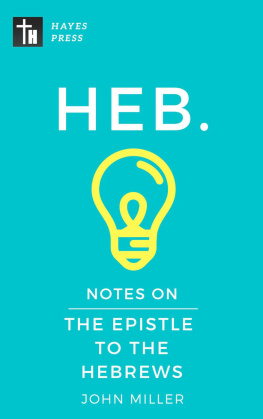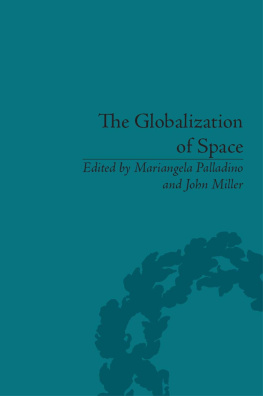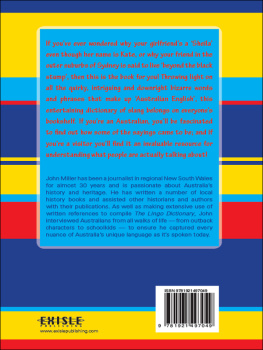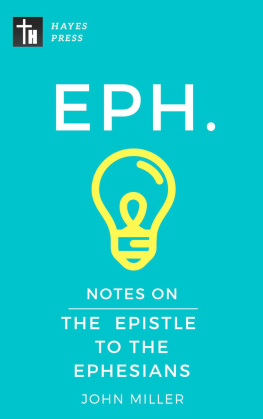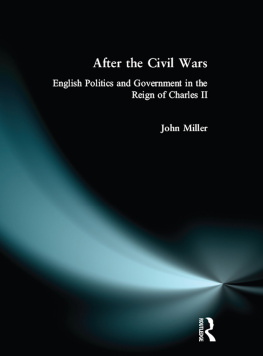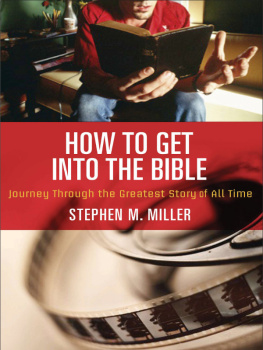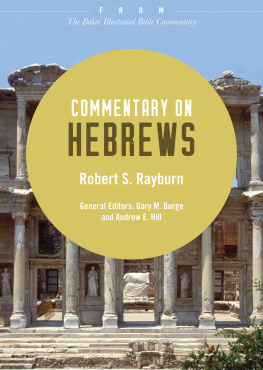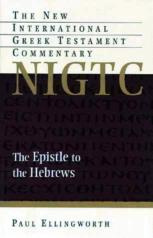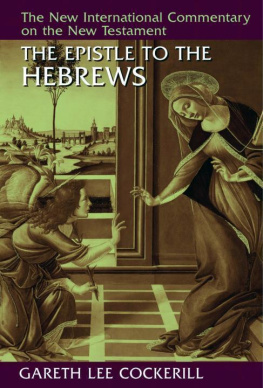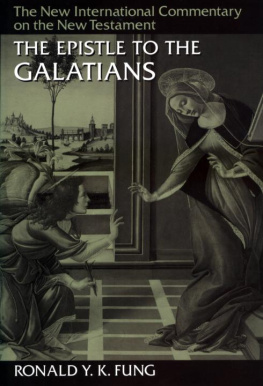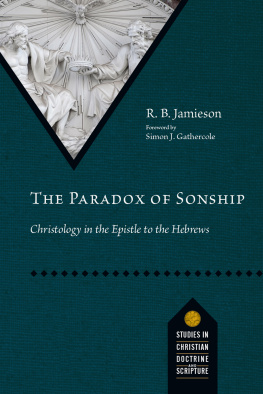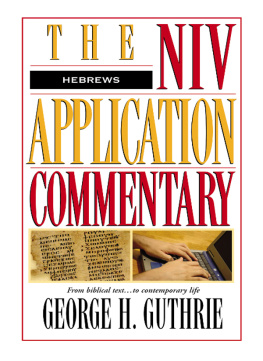John Miller - Notes on the Epistle to the Hebrews
Here you can read online John Miller - Notes on the Epistle to the Hebrews full text of the book (entire story) in english for free. Download pdf and epub, get meaning, cover and reviews about this ebook. year: 2018, publisher: Hayes Press, genre: Religion. Description of the work, (preface) as well as reviews are available. Best literature library LitArk.com created for fans of good reading and offers a wide selection of genres:
Romance novel
Science fiction
Adventure
Detective
Science
History
Home and family
Prose
Art
Politics
Computer
Non-fiction
Religion
Business
Children
Humor
Choose a favorite category and find really read worthwhile books. Enjoy immersion in the world of imagination, feel the emotions of the characters or learn something new for yourself, make an fascinating discovery.
- Book:Notes on the Epistle to the Hebrews
- Author:
- Publisher:Hayes Press
- Genre:
- Year:2018
- Rating:4 / 5
- Favourites:Add to favourites
- Your mark:
- 80
- 1
- 2
- 3
- 4
- 5
Notes on the Epistle to the Hebrews: summary, description and annotation
We offer to read an annotation, description, summary or preface (depends on what the author of the book "Notes on the Epistle to the Hebrews" wrote himself). If you haven't found the necessary information about the book — write in the comments, we will try to find it.
We turn to this wonderful epistle to learn of the Lords priesthood and His work in connection with the heavenly sanctuary and also the service of the people of God in association therewith. It is indeed a precious inheritance to Gods people and may we prize more and more its mind-illuminating contents - John Miller
Notes on the Epistle to the Hebrews — read online for free the complete book (whole text) full work
Below is the text of the book, divided by pages. System saving the place of the last page read, allows you to conveniently read the book "Notes on the Epistle to the Hebrews" online for free, without having to search again every time where you left off. Put a bookmark, and you can go to the page where you finished reading at any time.
Font size:
Interval:
Bookmark:
NOTES ON THE EPISTLE TO THE HEBREWS
JOHN MILLER
Copyright Hayes Press 2018
All rights reserved. No part of this book may be reproduced, stored in a retrieval system, or transmitted in any form, without the written permission of Hayes Press.
Published by:
HAYES PRESS
The Barn, Flaxlands
Royal Wootton Bassett
Swindon, SN4 8DY
United Kingdom
www.hayespress.org
Unless otherwise indicated, all Scripture quotations are from the Revised Version, 1885 (RV, Public Domain). Scriptures marked KJV are from the King James Version, 1611 (Public Domain).
 |  |


God is the speaker in both the Old and New Covenants: the channel of communication of old was the prophets He spoke in the prophets, but now He speaks in Son, that is, in one who is Son. The absence of the definite article more emphatically and definitely expresses the exclusive character of His Sonship. His manner and method of speaking of old time was varied; He spoke in many parts and in many ways, in inspiration as varied as His material universe. Variety is the law of the universe: neither men nor beasts (of the same species), nor trees, nor leaves, nor blades of grass are exactly similar; so is the variety and beauty of His word.
The Psalms are different from the Proverbs, though they are the writings of father and son, and the Songs diverse from Ecclesiastes, the writings of the same man. The fathers were they to whom His words were spoken, but now He has spoken to us, and happy are they who so view Gods word as His message to them. God appointed (Gk. tithemi, to place, set or appoint) the Son to be His Heir, a fact which the Aorist shows to be in the past, but when we are not told. Abrahams appointment of Isaac to be his heir is a beautiful type of this. All things have been given by the Father to the Son. He, the Heir, washed the disciples feet, though He knew that the Father had given all things into His hands (Jn 13:3). The Heir was killed by the Jews This is the Heir, come let us kill Him and take His inheritance. His inheritance is wider than Israel I will give Thee the nations for Thine inheritance (Ps.2:8), and it is wider than that still. The Son was the Master Workman who carried out the Fathers designs (Prov.8:30; Jn 1:3).
The word worlds is ages, usually translated ages in the RVM. The LORD is the Father of Eternity (Isa.9:6, RVM). Age, Gk. aion, duration, finite or infinite, in its plural form indicates periods of duration past or future in what is called eternity; it is also used of periods of duration in time not bounded by the ordinary fixed limits by which time is reckoned, such as years and so forth. We read of the course (age) of this world (Cosmos) (Eph.2:2), and of this present evil world (age) (Gal.1:4). It seems that more is involved in Heb.1:2 than periods of duration, and more, too, than the material universe; it may be that to each of the rolling ages He gave a character and content diverse and beautiful, and as the ages roll along there will be fresh unfolding of His mind and purpose. Our present limitation should make us careful not to dogmatize in so profound a matter. Known unto God are all His works from the beginning, not merely those which have existed or do exist, but such as shall yet be.
Heb.1:3
Who being describes what He is (not what He became) and what He can never cease to be. The effulgence: He is the radiation of the glory of Deity, not partially, but absolutely. This is no transient glory as was seen in the face of Moses, who carried in his hands the law which revealed Gods Holiness. Every attribute of Deity is to be seen in the Son, who is the Revealer of God His justice and holiness, His truth, grace, goodness, gentleness, meekness, love, compassion, and so forth, and every beauty of the splendour which is called the Glory (Gk. tes doxes), which of old the Hebrew called the Shekinah, radiates in the person of the Son. He is also the very Image (Gk. charakter, from charagma, to cut in, engrave, impress or stamp) or exact impress of the substance or subsistence of God (Gk. hupostasis, to place under, substance, something of which we can say it is, opposed to Gk. he phantasia, mere appearance, (Heb.1:3).
We can say truly God is and He has expressed Himself in His exact impress His Son, His very image. We may help ourselves to grasp what is meant by such similitudes as the impress of a seal on soft wax, as a stamp on paper, a penny from the die in the mint, or as the image in marble, chiselled by the sculptor, who has cut with precision the delineations of his subject in the stone. Upholding (Gk. phero, to bear); the weight of all things hangs upon His spoken word (Gk. rhema, what is spoken), and His word has so great power (Gk. dunamis) or ability that it will never fail or break down. His creative word, when He spoke and it stood fast, still maintains what He brought into existence. By Himself and our are omitted by the most of the great textual critics, as having no sufficient authority to be inserted. Here we have the antitype of the Day of Atonement in Lev.16, but He needed not first to offer for His own sins, only for the sins of the people. The high priest of old went in to sprinkle, to cleanse and to retire, but He, the great High Priest, went in to sit down on the right hand of the Majesty on high. He sits with perfect right on the throne of Deity, because he is God.
Heb.1:4
He has become better because He is better. He who in incarnation became a little lower than angels, has in His ascension on high become better than they, because of the inherited name He bears that of Son, a name which describes His true and eternal relationship to God the Father. This name was His before His incarnation: For God sent not the Son into the world to judge the world, but that the world should be saved through Him. Note the words into the world (Gk. eis ton cosmon); He was the Son before He was sent into the world (Jn 3:17). The name Son was His whilst on earth, and it always will be His.
Heb.1:5
The answers to these questions are, that at no time and to none of the angels did He ever so speak. They are creatures, but He the Increate begotten, not made, the Only Begotten. One who is immutable in essence and attributes as the Father; One who remains the same Yesterday and today, yea and for ever. This quotation from Ps.2 is stated to be a decree, I will tell of the decree: The LORD said unto Me, Thou art My Son. This decree is a statute to be observed, believed and owned by all created intelligences, a fact which is the very core of the gospel; faith in the Son of God is necessary to salvation. This day have I begotten Thee; was this the resurrection morn? Nay! for He was the Son of God on earth, and before He came to earth.
This text is quoted thrice in the New Testament, (A), in association with His birth (Acts 13:33) (compare the raising up (Gk. anistemi) of Jesus, in verse 33, with the raising up (Gk. egeiro) of David, in verse 22, contrast the uses of anistemi and egeiro in verses 16 and 30 and contrast these with His being raised up from the dead, in verse 34); (B), in association with His being raised from the dead in Heb.1:5; and (C), in association with His priesthood, in Heb.5:5: This day (Gk. semeron, today) is not a point in time, nor yet any point in eternity which is past. God is the ever present I am, to Him there is no past or future. He dwells in one ever-present today that had no yesterday and will have no tomorrow. It is what Peter calls the day of eternity (2 Pet.3:18, RVM). Here we may quote the weighty words of J. Hawkins in N.T., Vol. 31, pages 140-141:- Some may create difficulty by associating the To-day of the oracle with the event expressed in the words, In that He raised up Jesus. There is no warrant for this. To-day expresses neither past nor future; it is a day that was not born out of yesterday, and never shall pass into tomorrow.
Next pageFont size:
Interval:
Bookmark:
Similar books «Notes on the Epistle to the Hebrews»
Look at similar books to Notes on the Epistle to the Hebrews. We have selected literature similar in name and meaning in the hope of providing readers with more options to find new, interesting, not yet read works.
Discussion, reviews of the book Notes on the Epistle to the Hebrews and just readers' own opinions. Leave your comments, write what you think about the work, its meaning or the main characters. Specify what exactly you liked and what you didn't like, and why you think so.

